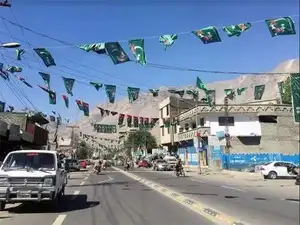Balochistan: History, Independence Movements, and Regional Impact
Balochistan sits at the crossroads of South Asia and the Middle East, known for its rugged landscape, natural resources, and a long history of resistance. In recent years, the region has drawn global attention due to rising demands for autonomy and independence. Understanding the background, key players, and regional consequences is vital to grasp the evolving situation in Balochistan.

The Historical Backdrop of Balochistan
Balochistan, the largest province in Pakistan by area, has a unique identity shaped by centuries of history and diverse tribal cultures. When the British left the Indian subcontinent, Balochistan's leaders claimed that their territory was independent and resisted its integration into Pakistan. Disputes over autonomy and resource control have sparked several uprisings since 1948.
Despite abundant natural gas, minerals, and valuable coastline, the local population has often felt marginalized. Many Baloch believe Islamabad exploits their resources without offering fair development or representation in return. These concerns have fueled ongoing dissent and deep societal fractures.
Recent Developments: Independence Movement and Unrest
The situation in Balochistan has taken a dramatic turn in recent years. The Baloch Liberation Army (BLA), a separatist group, has intensified operations, targeting security infrastructure and demanding independence. In a recent wave of attacks, the BLA conducted coordinated strikes across the province, including seizing highways and sabotaging government posts.
As The Economic Times reports, Baloch leaders have declared independence, urging international support and highlighting decades of alleged oppression, air raids, and enforced disappearances. Mir Yar Baloch, speaking on behalf of these groups, emphasized that Balochistan is not Pakistan, urging the world to recognize their distinct identity and demands for sovereignty.
Regional and International Implications
Balochistan’s unrest carries significant implications for South Asia’s security and politics. The province borders Iran and Afghanistan and occupies a strategic position along major trade routes. Instability in this region can influence Pakistan’s relations with its neighbors and complicate diplomatic efforts.
Heightened tensions between India and Pakistan also factor in. When violence flares or international leaders address the situation—such as during the recent India-Pakistan military confrontations discussed by BBC News—Balochistan often appears in wider geopolitical narratives. Calls for international intervention and human rights investigations have increased as violence intensifies and protesters take to the streets.
The Voices from Balochistan
Baloch activists highlight a long list of grievances, including state-led human rights abuses, disappearances, and economic exclusion. Reports from prominent organizations further document these challenges, underlining the urgency for reforms and dialogue. For many in the region, the conflict is about survival and justice as much as it is about politics.
A Times of India article quotes Baloch leaders appealing directly to international media, asking for fair representation and recognition. These voices urge outsiders to look past official narratives and understand the aspirations and struggles of ordinary Baloch people.
Conclusion: The Way Forward
Balochistan’s story is complex, marked by a history of resistance and hope for change. As the independence movement grows louder, the need for constructive international engagement becomes pressing. Understanding the roots of unrest and amplifying authentic voices are the first steps toward peace and progress. To gain deeper insights, explore recent events and varied perspectives in sources like The Economic Times and BBC News.